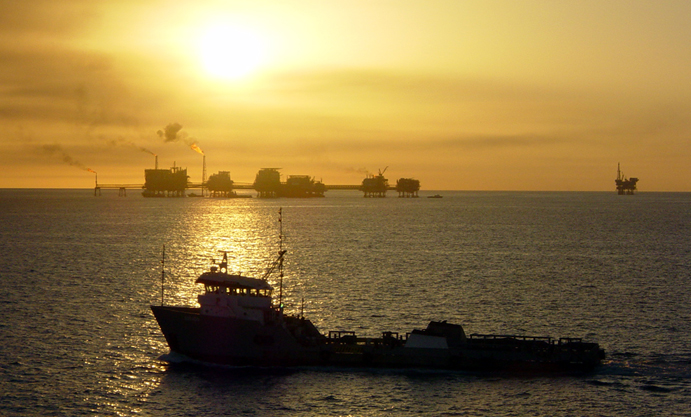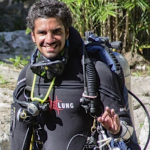
Photo Credit: “Gulf of Mexico” by Chad Teer via Flickr / CC BY 2.0.
Tucked between the Atlantic and Pacific Oceans, and bordered by the Caribbean Sea, Mexico is a country surrounded wide expanses of water. To counter the effects of climate change, understanding how Mexico can best manage its oceans is crucial.

Juliano Palacios-Abrantes
In a new study involving international institutions in Canada, Mexico and the United States, researchers compiled and analyzed information from existing databases to understand the current state of knowledge about ocean research in Mexico. Using this, they can help figure out how key decision-makers can take the best next steps against climate change.
“With this study, we aimed to collect the most amount of information available related to Mexico’s marine environment in order to not only understand what we know now, but also to provide a tool to improve the management and conservation of Mexico’s marine resources,” said Juliano Palacios-Abrantes, lead co-author of the study and PhD Candidate at UBC’s Institute for the Oceans and Fisheries (IOF) and UBC’s Department of Zoology.
Using Mexico as an case study, the study compiled and analyzed a massive amount of ocean knowledge into what is called a metadatabase, a database that catalogues information from other databases. While a large amount of data on marine ecosystems exists, it is often hard to find or access information about past or ongoing research, leaving individuals in certain fields unaware of related studies.
By compiling such data into an open-source metadatabase, however, the researchers could counter this issue and improve the current understanding of Mexico’s ocean research. They analyzed data from existing databases to understand the current knowledge trends and to identify gaps that could be addressed in future research, thus helping stakeholders and decision-makers make the best choices for ocean management and sustainability.
The researchers gathered data related to Mexico’s surrounding oceans from a variety of sources, including public websites, workshops, public data from governmental and environmental organizations, private data from industries, international sources and unpublished data kept by institutions.
“It can be hard for researchers to freely share data that could be private or sensitive, but by just focusing on understanding what exists, we can paint a better picture of where we are at in terms of scientific knowledge, what more information we need, and who is studying related issues so we can work better together,” said Andrés Cisneros-Montemayor, lead co-author of the study and a Program Manager and Research Associate with the Nippon Foundation – UBC Nereus Program. He is also part of the Fisheries Economics Research Unit at IOF (FERU).
“… just focusing on understanding what exists, we can paint a better picture of where we are at in terms of scientific knowledge, what more information we need, and who is studying related issues so we can work better together.”
Through their analysis, the researchers found that ocean-related research in Mexico has historically focused on mostly ecology and fisheries, with other topics like social issues, conservation or oceanography being represented less. The impacts of climate change on communities are now recognized as a major challenge for the future, which means there is a need for long-term ecological and social data to fill information gaps and help communities best adapt.

Andrés Cisneros-Montemayor.
Most information was available for the Gulf of California, Campeche Bank and Caribbean, and less for the central and south Pacific and the western Gulf of Mexico. “Anyone in Mexico knows that there are big regional gaps in our knowledge of the oceans, and you can see that in the metadatabase, which can help support research and researchers in those areas,” said Cisneros-Montemayor.
The researchers emphasized that in order to effectively manage human drivers of climate change, we need data that comes from different disciplines, spans the longest time range and covers different geographic scales. Creating metadatabases is one way to manage this problem by compiling such diverse data into one repository, especially for countries like Mexico which may have more limitations on data availability or research capacity.
“We have created here the most complete metadatabase of marine research in Mexico that allow us to have an idea of the data trends and gaps in the country,” said Palacios-Abrantes. “Thanks to the National Commission for the Knowledge and Use of Biodiversity (CONABIO) in Mexico, the final product is an open-source and dynamic tool that can be accessed by anyone and is open to the addition of new records. We hope that this multi-institutional effort helps improve marine conservation and management in Mexico.”
The study “A metadata approach to evaluate the state of ocean knowledge: Strengths, limitations, and application to Mexico” was published in the journal PLOS ONE.
The most updated version of the metadatabase of marine research in Mexico is generously hosted by CONABIO and can be found here: www.infoceanos.conabio.gob.mx.
Tags: Andrés Cisneros-Montemayor, FERU, IOF Research Associates, IOF students, Nereus Program, Research